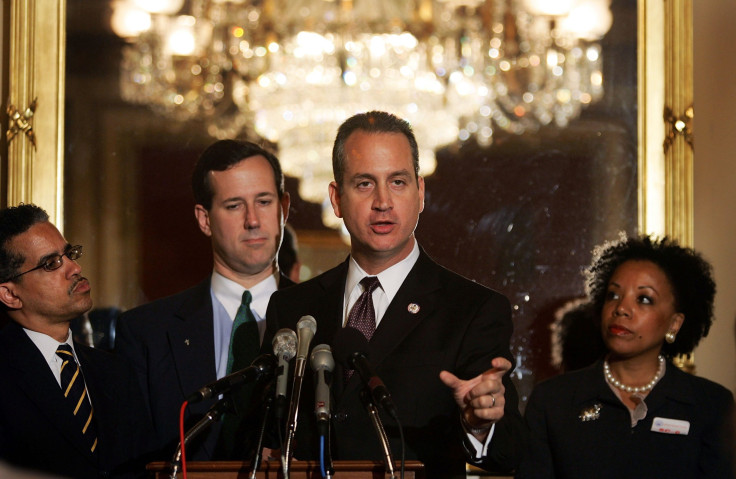Horse Slaughter Ban Revoked By House Appropriations Committee After Republican Mario Diaz-Balart Switches Vote

The House Appropriations Committee voted Wednesday to reopen the practice of horse slaughter in the United States. The practice was banned by the Congress in 2007, and the funding for inspection of the facilities where horse slaughter was carried out was eliminated.
The decision to repeal the ban came after 27 representatives voted against it, compared to 25 who voted in favor of the renewal of the ban. The move for the renewal of the ban was pushed by Rep. Lucille Roybal-Allard (D-California). As the margin was pretty close, every vote that was switched from a “yes” to “no” mattered. And one of the representatives who switched sides was Rep. Mario Díaz-Balart (R-Florida).

Díaz-Balart originally voted in favor of the ban when it was time for its renewal in 2014, but switched his vote this time. When asked the reason behind his change of heart, he explained the horses got slaughtered either way — with or without the ban — when they were taken to the countries where the Department of Agriculture (USDA) did not hold the jurisdiction.
“The reality is, if these horses are not dealt with in USDA certified and inspected facilities, they will be hauled off to a foreign market where the conditions are much crueler and less humane,” Díaz-Balart said in a statement, Miami Herald reported. The House's decision will be written into law following President Donald Trump's approval.
Read: Horse Slaughter Likely Back in U.S. Soon; USDA Ban Lifted
However, the American Society for the Prevention of Cruelty to Animals (ASPCA) has emphasized time and again that horse slaughter is inhuman, regardless of how the horses are treated leading up to the moment of the execution. “The term ‘horse slaughter’ refers exclusively to the killing and processing of horses for human consumption. Horse slaughter is NOT humane euthanasia. While ‘euthanasia’ is defined as a gentle, painless death provided in order to prevent suffering, slaughter is a brutal and terrifying end for horses,” ASPCA said on its official website.
Even though most votes that were cast against the ban came from Republicans, not every GOP member was happy with the final decision. “As a lifelong Republican, I’m deeply saddened and quite ashamed to see my fellow conservatives go to such great lengths to promote the slaughter of American equines,” said Marty Irby, who heads the Humane Society of the United States equine campaign.
“I hope the members who profess to be fiscal conservatives will reflect upon this vote that would have saved millions of taxpayer dollars annually – and begin to practice what they preach.”
Read: USDA Endorsed Horse Meat in 1997

Rep. Earl Blumenauer (D-Oregon), who also co-chairs the Animal Protection Caucus, condemned the House Appropriations Committee’s action. “While some members of the Appropriations Committee may think it’s their job to roll back these common-sense safeguards, there is a strong bipartisan coalition in the House and Senate who agrees with the American public that horse slaughter must end. This isn’t over, and we will look for opportunities to reinstate the ban as the appropriations process continues,” Blumenauer said in a statement.
Since the ban on horse slaughter has been in place for more than a decade, none of the slaughter houses that butcher horses are operational in the U.S. anymore. Prior to the ban, however, several slaughter houses exported the horse meat overseas. According to the ASPCA, two of the facilities in Texas and Illinois killed and processed more than 104,000 horses in 2006, before they were shut down.
ASPCA has also emphasized that just because 137,000 American horses are sent each year to slaughter facilities in Mexico and Canada, reopening slaughterhouses in the U.S. cannot be the answer to ending what many consider a barbaric practice.
© Copyright IBTimes 2024. All rights reserved.












